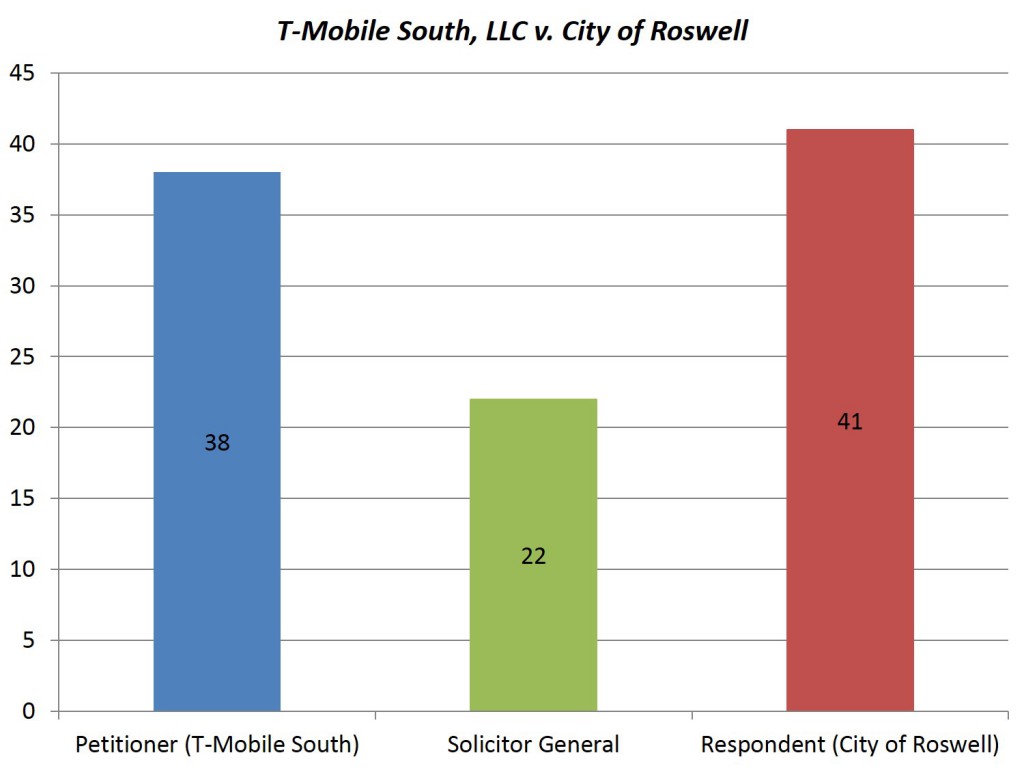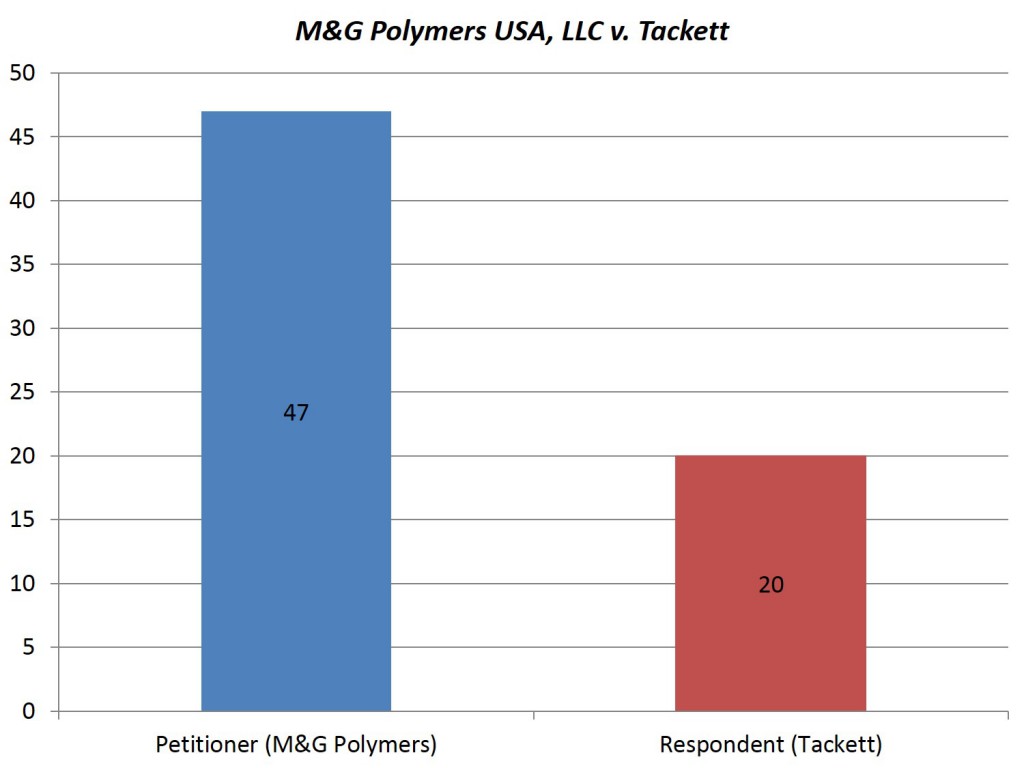The Supreme Court heard oral argument in two cases on Monday. I’m predicting the winners of the Supreme Court cases based on the number of questions asked during oral argument. I do not evaluate the actual substance of the questions except to determine if there was a question to elicit an answer or response from the advocates. For more about this method, see my post on last Term’s Aereo case.
T-Mobile South, LLC v. City of Roswell asks whether a document from a state or local government stating that an application has been denied, but providing no reasons whatsoever for the denial, can satisfy the Communications Act’s “in writing” requirement.
This case is difficult to call. By my count, the Court asked the Petitioner (T-Mobile South) 38 questions and the Respondent (City of Roswell) 41 questions. The Solicitor General supporting neither party was asked 22 questions (10 by Justice Scalia), a fairly high number for the short time allotted to the SG as amicus curiae.
Figure 1.

It’s not clear to me from the Court’s order how much time was allotted to the SG, but I’m guessing it was 10 minutes taken out of the Petitioner’s time because the SG at least agreed with the Petitioner that the City of Roswell’s explanation for its decision in the case was inadequate. If my guess is correct, then the Petitioner receiving fewer questions might be a natural consequence of having fewer minutes allotted for oral argument.
Nonetheless, I’m giving a slight edge to the Petitioner (T-Mobile South). Without discounting for what may have been more time for oral argument to the Respondent, the Petitioner received fewer questions from four Justices (Scalia, Kennedy, Alito, and Sotamayor). By contrast, three Justices (Roberts, Ginsburg, and Kagan) asked the Respondent fewer questions. Justice Breyer asked the same number of questions, and Justice Thomas asked no questions. Besides the fewer total questions asked of the Petitioner and the greater number of Justices who asked the Petitioner fewer questions, I also found significant Justice Kennedy’s 7 questions to the Respondent (which is a high number for Kennedy, who asked 5 to the other side), as well as Justice Scalia’s 14 questions to the Respondent (11 more than he asked the Petitioner). Justice Sotomayor also asked the Respondent a large differential of questions (6 more than the Petitioner). Adding these factors up, I predict a victory for T-Mobile.
The second case, M&G Polymers USA, LLC v. Tackett, asks whether, when construing collective bargaining agreements in Labor Management Relations Act (LMRA) cases, courts should presume that silence concerning the duration of retiree health-care benefits means the parties intended those benefits to vest (and therefore continue indefinitely), as the Sixth Circuit holds; or should require a clear statement that health-care benefits are intended to survive the termination of the collective bargaining agreement, as the Third Circuit holds; or should require at least some language in the agreement that can reasonably support an interpretation that health-care benefits should continue indefinitely, as the Second and Seventh Circuits hold.
This case is easier to predict–finally an easy one! The Court asked the Petitioner (M&G Polymers) 47 questions and the Respondent (Tackett) 27 questions–a disparity of 20 questions. I predict a victory for the Respondent.
Figure 2.

